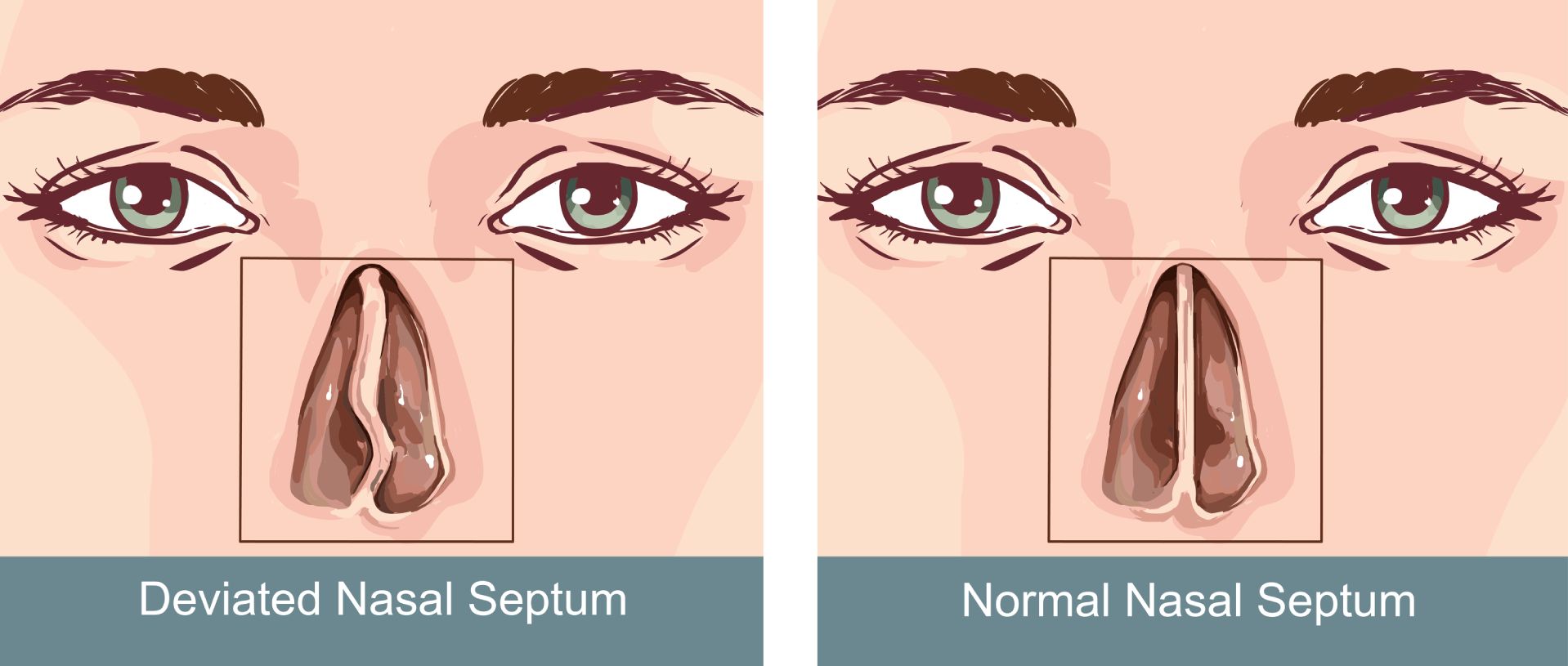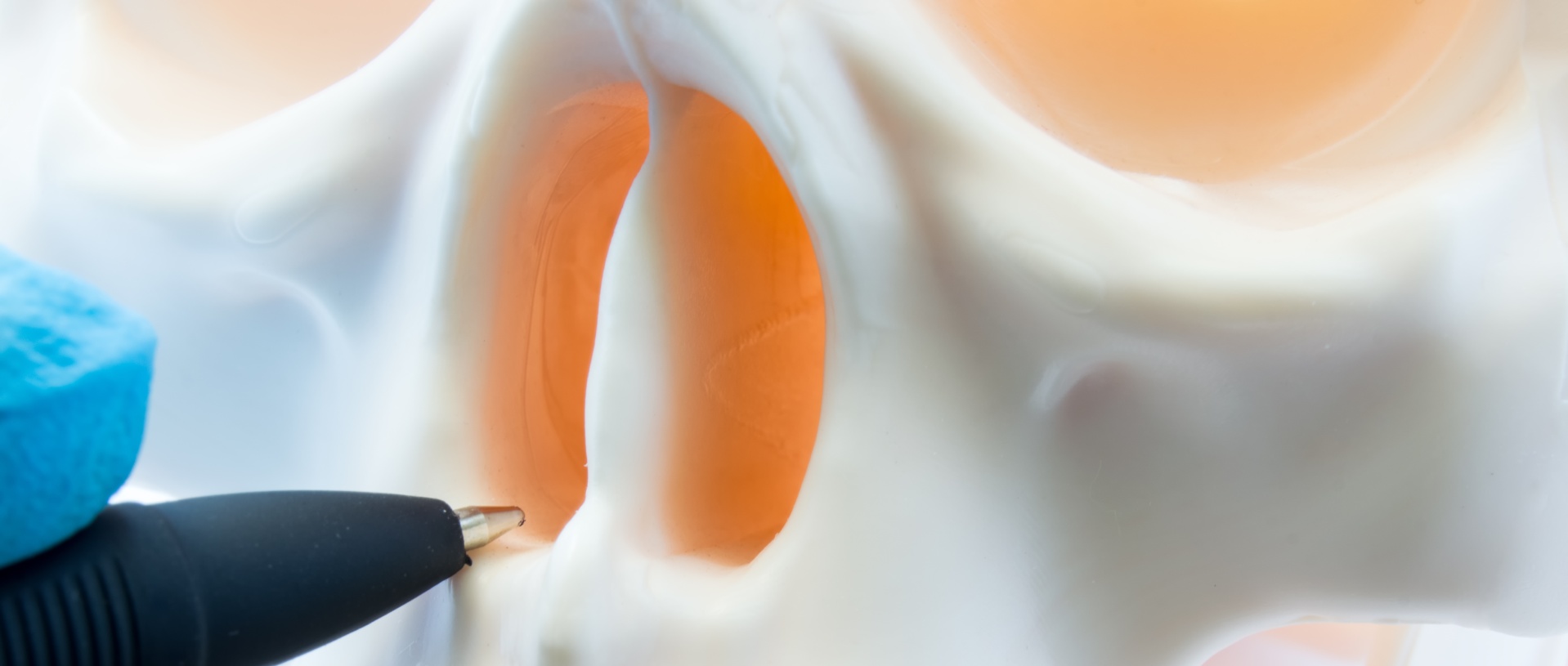Deviated Septum Surgery
A deviated septum, a condition where the nasal septum is shifted or crooked, can not only affect the aesthetic appearance of the nose but also impair breathing and overall nasal function. A septoplasty, performed by board-certified plastic surgeon Dr. Azouz in Dallas, offers a solution to alleviate symptoms and restore optimal nasal airflow for improved quality of life. Dr. Solomon and David Azouz have performed thousands of septoplasties over a combined experience of 45 years. Drs. Azouz have a focus on both cosmetic and functional outcomes.
What is Septoplasty?
Deviated septum surgery, also known as septoplasty, is a surgical procedure aimed at straightening the nasal septum to improve airflow through the nasal passages. While cosmetic rhinoplasty aims to improve the nose’s outward look, septoplasty mostly deals with functional problems caused by nasal blockage and improve deviation of the nose cosmetically because it is the foundation of the nose.

Who is a candidate for a septoplasty?
Ideal candidates for septoplasty are individuals who:

- Experience difficulty breathing through one or both nostrils
- Have been diagnosed with a deviated septum by a qualified medical professional
- Suffer from chronic nasal congestion, sinus infections, or sleep disturbances due to nasal obstruction
- Have realistic expectations about the outcome of the surgery
- Are in good overall health and do not have underlying medical conditions that may increase surgical risks
Benefits of Deviated Septum Surgery
Septoplasty offers a range of benefits, including:
- Improved nasal airflow and breathing capacity
- Relief from chronic nasal congestion and sinus pressure
- Reduced frequency and severity of sinus infections
- Enhanced quality of sleep and overall well-being
How is a Septoplasty performed?
Dallas plastic surgeon Dr. Azouz employs advanced surgical techniques to achieve optimal results while minimizing trauma to the nasal tissues. The procedure typically involves:
- Consultation: Dr. Azouz conducts a thorough evaluation, including a nasal examination and review of medical history, to determine the extent of septal deviation and discuss the goals of surgery.
- Surgical Planning: A personalized treatment plan is developed to address the specific concerns and goals of each patient.
- Surgery: Dr. Azouz carefully straightens the deviated septum by making precise incisions and removing or repositioning excess cartilage or bone.
- Closing Incisions: Incisions are closed with dissolvable sutures, and nasal packing or splints may be placed to support the septum during healing.
- Recovery: Patients are monitored closely post-surgery, and instructions for nasal care and follow-up appointments are provided to ensure proper healing and optimal results.
Anesthesia for a Septoplasty

To help prevent the postoperative side effects of general anesthesia, board-certified plastic surgeon Dr. Azouz instead uses sedation to keep patients comfortable during surgery. Dr. Azouz also injects a local anesthetic to help control pain both during and after the procedure. Dr. Azouz works closely with experienced anesthesiologists to ensure patient comfort and safety throughout the surgery.
Risks of Deviated Septum Surgery
While septoplasty is generally safe, like any surgical procedure, it carries some risks, including:
- Bleeding
- Infection
- Perforation of the septum
- Unsatisfactory functional outcome
Board-certified plastic surgeon Dr. Azouz discusses these risks with patients during the consultation and takes appropriate measures to minimize them.
Recovering from Deviated Septum Surgery
The recovery process following a septoplasty in Dallas typically involves:
- Mild swelling and discomfort, which can be managed with pain medications and cold compresses.
- Temporary nasal congestion and drainage, which improve as the nasal tissues heal.
- Avoidance of strenuous activities for several weeks to allow for proper healing.
- Follow-up appointments with Dr. Azouz to monitor progress and ensure optimal healing and functional improvement.
Patients are advised to follow post-operative instructions carefully to optimize recovery and achieve long-term relief from nasal obstruction.
Surgeries that can be combined with a Septoplasty
In some cases, septoplasty may be combined with other procedures to address additional nasal concerns, such as:
- Rhinoplasty to improve the external appearance of the nose while correcting functional issues.
- Turbinate reduction to reduce the size of swollen nasal turbinates and further improve nasal airflow.
- Sinus surgery to address chronic sinusitis or nasal polyps.
Board-certified plastic surgeon Dr. Azouz will discuss the possibility of combining procedures during the consultation and develops a personalized treatment plan based on each patient’s goals. In most cases, combining procedures can be more cost effective, depending on the desired results.
How much does deviated septum surgery cost?
There are many factors that contribute to the total cost of a septoplasty, or deviated septum surgery, including surgery fees, anesthesia fees, facility fees, and any necessary equipment. During your consultation, Dr. Azouz will provide a personalized quote and financing options for a septoplasty in Dallas.
Schedule your consultation with Dr. Azouz
Septoplasty is a way to improve nasal function and quality of life for those with deviated septum-related nasal blockage. Contact us online or call (972) 702-8888 to schedule a consultation with Dr. Azouz right now to start along the path to improved health and easy breathing.| Monday | 9AM-5PM |
|---|---|
| Tuesday | 9AM-5PM |
| Wednesday | 9AM-5PM |
| Thursday | 9AM-5PM |
| Friday | 9AM-5PM |
| Saturday | Closed |
| Sunday | Closed |
Frequently Asked Questions
In many cases, septoplasty may be covered by insurance if it is deemed medically necessary to improve nasal function. Dr. Azouz's office can assist in verifying insurance coverage and obtaining pre-authorization if necessary.
While recovery times vary, most patients can resume normal activities within a week after surgery, although strenuous exercise should be avoided for several weeks.
A septoplasty primarily focuses on improving nasal function and may not significantly alter the external appearance of the nose. However, in some cases, septoplasty may be combined with rhinoplasty to address both functional and aesthetic concerns.
Yes, board-certified plastic surgeon Dr. Azouz employs advanced surgical techniques to minimize scarring, and any incisions are typically made inside the nose, resulting in no visible external scars.
